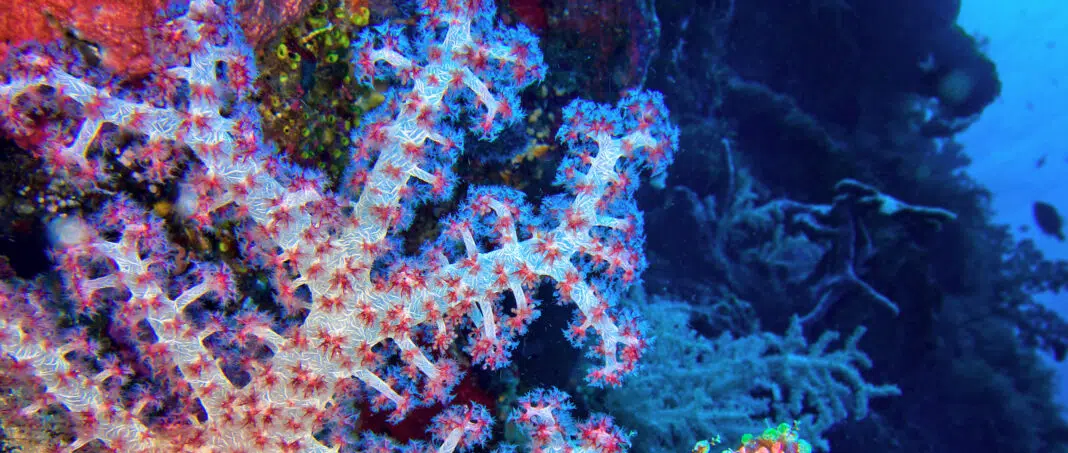Researchers at the Woods Hole Oceanographic Institution (WHOI), Mote Marine Laboratory and Aquarium and the Scripps Institution of Oceanography have published a paper highlighting new innovative techniques that can be used to monitor the health of coral reefs.
The new innovative procedures involve looking at microbes and dissolved metabolites (the byproduct of reef metabolism). These two data points can then serve to give scientists a good idea of what is going on with the health of the reef.
According to the paper:
“Microorganisms and the dissolved metabolites they process are central to the functioning of ocean ecosystems. These “invisible” ocean features are poorly understood in biodiverse and productive coral reef ecosystems, where they contribute to nutrient cycling and signaling cues among reef organisms. This study demonstrates that reef water microbes and metabolites successfully distinguish reef habitats, including geographical, reef compositional, and environmental features, and together they provide novel insights into reef ecosystem characteristics.”
Commenting on the work, Amy Appril, co-author and associate scientist in the Marine Chemistry and Geochemistry Department at WHOI, stated:
“For the most part, the techniques that researchers so far have used to assess coral reef health are visual based. For instance, when researchers see a coral turning white, they know that something has caused it to be stressed. Visual changes on reef reefs tell you what’s already happened in the past. But when we take a measurement of microbes or metabolites, we get a snapshot of current conditions. Coral reefs are very dynamic ecosystems. Their health can change rapidly, and microbes and metabolites are basically sensors that can tell us about what’s happening now on a reef and provide more insight into processes than can be obtained from photographs.”
While Erinn Muller, fellow co-author and associate vice president for research at the Mote Marine Laboratory and Aquarium, added:
“It’s incredibly impressive that this team characterized the microbes, and the molecules they and reef organisms produce, across almost the entirety of Florida’s Coral Reef within just two weeks, ultimately providing a critically important, geographically-focused benchmark to compare with future studies. This study highlights associations among the reef community, disturbances such as disease outbreaks, and the reef water’s microbial characteristics. These ‘silent signals’ can provide insight into the health state of our coral reefs in ways previously unexplored.”
You can find the original research here.

